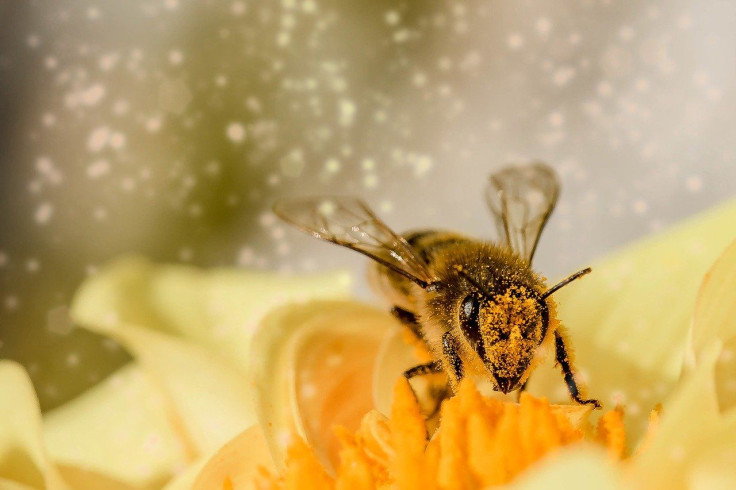EPA Considering 'Emergency Use' Of 'Bee-Killing' Pesticide In Florida
KEY POINTS
- The EPA received a request for the emergency exemption of clothianidin
- Clothianidin is said to be a "bee-killing" neonicotinoid insecticide
- The agency is seeking public comments to determine if it will grant the exemption
The Environmental Protection Agency (EPA) is looking at possibly granting emergency approval for the use of a "bee-killing" pesticide. Such chemicals are particularly toxic to invertebrates such as insects.
On Tuesday, the EPA released a notice that it has received a request from the Florida Department of Agriculture and Consumer Services about the usage of clothianidin on "up to 125,376 acres of immature citrus trees" to prevent the transmission of Huanglongbing disease, also known as the citrus greening disease. The vector for this disease is the Asian citrus psylid.
"The applicant proposes a use that has been requested in 5 or more previous years," the EPA noted. "Therefore, EPA is soliciting public comment before making the decision whether or not to grant the exemption."
Clothianidin is a neonicotinoid insecticide, also known as neonics or NNIs. Neonics are said to be "systemic pesticides," which means they don't just stay on the surface of treated plants but are "taken up" and transported throughout the plant, from the roots to even the nectar and pollen.
Neonics are particularly harmful to invertebrates such as insects, in whom the chemical affects the nervous system, eventually leading to paralysis and death.
According to the Center for Biological Diversity (CBD), in Florida alone, there are so far 16 insecticides that are approved to combat Asian citrus psylid. Three of these are neonics.
"Citrus growers should be aware that most insecticides recommended for psyllid control have restrictions on the pesticide label due to the impact these products may have on pollinators," the Universtiy of Florida noted.
However, the applicant is said to be seeking to use clothianidin "due to the lack of available alternative pesticides and effective control practices." About 50,000 lbs of the chemical could be used.
So far, the EPA notice itself "does not constitute a decision" regarding the application. But if the emergency approval is granted, then this would be the ninth year that such emergency exceptions to clothianidin has been granted to be used on "bee-attractive" citrus trees in Florida to target the Asian citrus psylid, the CBD noted.
According to the organization, the agency has "routinely allowed" such emergency exemptions when the situations have been "predictable and chronic."
"The true emergency here is the need to change the EPA's growing habit of granting so-called emergency uses of pesticides that haven't been approved as safe by the agency's normal review process," Nathan Donley, the environment health science director at the Center for Biological Diversity, said in the organization's statement.
"By routinely handing out emergency exemptions, the EPA has made a joke of the pesticide-approval process that's supposed to protect people and wildlife from harmful chemicals," Donley added.
The organization also cited a 2019 study, which found pesticides to be among the main drivers of worldwide insect species decline.
As per the EPA notice, those who would like to send in their comments on the request must submit them by Feb. 16.
"EPA seeks to achieve environmental justice, the fair treatment and meaningful involvement of any group, including minority and/or low-income populations, in the development, implementation, and enforcement of environmental laws, regulations, and policies," the EPA notice stated.

© Copyright IBTimes 2025. All rights reserved.






















